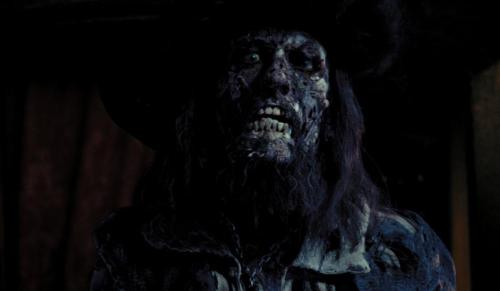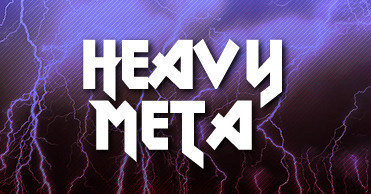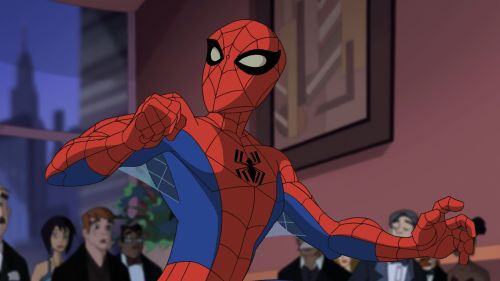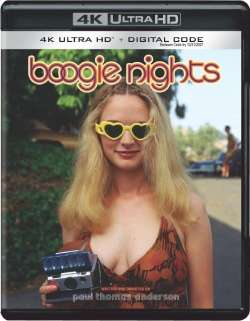On this week’s Heavy Meta, Vince cosplays as Nostradamus and paints a daunting picture of how Marvel’s devotion to its unified cinematic world could be a mistake.
For a lot of people, one of the big events in 2014 was Marvel’s announcement of their colossal film line-up for the next five years. For me it was a Tuesday. I found myself surprisingly apathetic, which surprised me. I loved Avengers, I love comic books, and I love the fact that more “niche” genres like superheroes are being given the attention that they deserve. But seeing the list, I wasn’t angry or offended or anything, but I found myself relating more to Geoffrey Rush in Pirates of the Caribbean.

Some had a similar reaction, leading to a number of articles about how market for superhero films is over-saturated. I don’t necessarily believe it’s that simple. Rather, I think my apathy towards it is the same kind of apathy I felt towards comics toward the tail end of 2009.
When I first got into the medium, it’s safe to say I was kind of spoiled. Thanks in part to listening to The League of Extremely Ordinary Gentlemen on Spill, I had a pretty solid direction to head off in for my journey into graphic novel goodness. I quickly devoured Watchmen, The Dark Knight Returns, Sandman, Preacher, and Transmetropolitan. I caught up on some of the prominent crossovers and runs considered universally strong by comic veterans and the cool cats at my local shop. After that though, I hit a wall. I knew I liked superheroes, but the stories all just felt like I read them before. The owners of 4-Colour 8-Bit in Kingston were cool enough to hand you a pile of trades for you to look through, and if you liked them, THEN you could buy them. But after going through this colossal stack, I felt more disillusioned than ever.
The stories all felt the same. The events never seemed to have any consequence. Everything seemed to be in service to the promotion and business aspect and never left me with any feeling of emotional depth. In contrast to most books (which tend to read better in collected editions), once an event was long past, the “EVERYTHING WILL CHANGE” ethos in the book seemed quaint, because reading it five years after… it hadn’t. Or, as the great Homer Simpson would put it, it changed, but quickly changed back. Seeing this over and over again, formulas began to reveal themselves, as did the nature of the business goals that replaced story needs in controlling the direction of the narrative. I ended up putting down comics for a good, long while. It wasn’t until Image Comics began to really blow up with the number of sci-fi, fantasy, and horror titles that I really dove back in. To this day, when I read superhero books, it’s more the exception than the norm.
The Blunder of Blandness
Similar to what I argued in my AAA Games article, I think superhero adaptations tend towards stagnation and orthodoxy, but not through any fault of the genre or its tropes. Rather, the reliance on formula and fear of true narrative growth are hallmarks of two companies for whom the money at stake is so huge that financial interests begin to crowd out narrative ones. That’s not to say that great stories can’t come out of these companies (Brubaker’s Death of Captain America, Immortal Iron Fist, Jonathan Hickman’s Fantastic Four, to name a few), but it takes a creator who is not only talented, but who has a great deal of clout from previous successes to get the creative freedom to make it happen. Furthermore, both DC and Marvel have a bad habit of spreading their star creators too thin, having them write upwards of five books until the overall quality can’t help but suffer for it (again, motivated by sales goals). When the quality suffers, the sales suffer, and the books get pulled or creators get taken off of books, and the cycle begins again.
However, returning to adaptations, you find the same problem as in the comics themselves. Avengers: Earth’s Mightiest Heroes, Spectacular Spider-Man, Teen Titans, and Young Justice were all shows that were beloved both for keeping the essence of their source material alive, and for being so damn fun. All were also cancelled following unsatisfactory ratings/toy sales, in order to be replaced by more dumbed-down schlock like Avengers Assemble and Teen Titans Go.
The above examples attempted to skew their shows toward an even younger audience in an attempt to raise merch sales. Things like dumbing down and status-quo writing (whether in the form of near constant ret-cons or bland adherence to formula) is another way comics companies bend a knee to the beast of economics. Safety in orthodoxy may offend or turn away the fewest number of people, but it also inspires the fewest. The same story written a thousand times before is never the one that makes lifelong fans out of newcomers, even if it gets them to pick up the book in the first place. Even if its written well. If Marvel is really concerned about a long-term investment paying off, being too afraid to take chances on narrative innovation is exactly what they should avoid, and to be fair, their hiring of mavericks like James Gunn and Joe Johnston to helm their films looks promising. Conversely though, the comments from Edgar Wright following the fall-out over Ant-Man suggest that the corporate storm is coming, looking to assimilate any vestige of the odd or unique in favor of its single-minded vision for how to pump up the next Avengers installment. Similar feelings have come even from directors who helmed Marvel’s existing franchises. Jon Favreau and Alan Taylor have both spoken candidly about the difficulty of dealing with production being rushed from the studio side of things.
What I worry about is the Marvel “Phases” turning into assembly line filmmaking; inserting Tab A into Slot B in the summer blockbuster model for the sake of getting it out the door in a form that hits enough selling points in order to be marketably successful in the same way McDonald’s burgers are: they’re accessible and inoffensive… but that’s about it.
I feel like as fans, we deserve better (and should demand more) from our films. Both for the veterans who have spent decades and thousands of dollars supporting the heroes they love, and for the wide-eyed newcomers who have yet to experience the best of what comics can be.
Vince Smith is a writer, podcast host, and dyed-in-the-wool geek of all trades. Check out his site The Rogues’ Gallery for more articles, Let’s Plays, and more, or drop by his Facebook Page, Vincent Smith: Writer, Scholar, Gentleman for other musings from the catacombs of the Internet.
-Written by Vincent Mendoza







